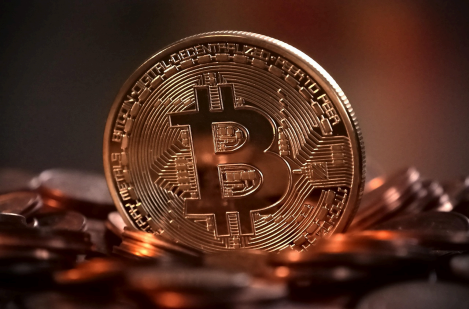Non-fungible tokens (NFTs) have been making headlines in recent years, but most people are still confused about what they are and how they work. Simply put, NFTs are unique digital assets that are stored on a blockchain, a secure and decentralized digital ledger. Unlike cryptocurrencies such as Bitcoin or Ethereum, which are fungible and can be exchanged on a one-to-one basis, NFTs are non-fungible, and each and every one of them is unique and cannot be exchanged on a like-for-like basis.
NFTs can be utilized to denote all types of digital assets, ranging from art to music to videos to even virtual real estate. When one purchases an NFT, one is essentially buying ownership of the digital asset the token represents. The ownership is recorded on the blockchain, which enables a definite and unalterable record of ownership. NFTs are bought and sold for cryptocurrency, and the transactions are recorded on the blockchain, hence they are tamper-proof and secure. This has spawned a rush of interest in NFTs as a new way of buying, selling, and trading digital assets.
However, there are dangers to investing in NFTs too. The NFT marketplace is very new and can be volatile, with prices shifting rapidly based on trends and speculation. There is fraud and scams to be concerned about too, since the decentralized character of blockchain technology can make it challenging to know whether NFTs are legitimate. There is also the risk that the NFT marketplace will get saturated, which will make the value of numerous digital items decline.
Exploring the Metaverse: Finding Virtual Worlds and Digital Assets
The concept of the metaverse has been gaining momentum in the past couple of years, and most people have been envisioning a future where virtual worlds and virtual assets become increasingly important in our lives. The metaverse is a virtual space in common that is the result of the convergence of physically persistent virtual reality and virtually enhanced physical reality. That is, it is a fully immersive digital world where people can interact with each other and digital assets in real time.
Within the metaverse, NFTs play the vital role of being digital assets that can be bought, sold, and traded within virtual worlds. This has led to virtual real estate markets, where people can buy and sell virtual land and property using NFTs. Virtual goods such as clothing, accessories, and even virtual pets can be bought and sold as NFTs within the metaverse. The advent of the metaverse has opened up new opportunities for developers and creators to build immersive virtual worlds that blend the physical and virtual worlds.
The concept of the metaverse has been around for decades but has seen renewed interest in the last few years thanks to the advancement of technology and the expansion of virtual reality and augmented reality experiences. The metaverse is a collective virtual space that is created by the convergence of virtually enhanced physical reality and physically persistent virtual reality. More simply put, the metaverse is a virtual universe that parallels our own, where users can interact with each other and virtual surroundings in real time. The concept of the metaverse has been introduced into the mainstream by science fiction books and movies, but it is now becoming actualized thanks to the development of virtual worlds, online games, social media platforms, and other immersive digital experiences.
As demand for NFTs rises, so does the potential for profit in this market. Investors can buy and hold NFTs as a long-term investment, with the expectation that their value will appreciate over time as demand for digital collectibles and virtual assets continues to rise. The gaming industry has been one of the most prominent early adopters of NFTs as a method of creating new sources of revenue and engaging with gamers in different ways.
Axie Infinity and others have created blockchain-based games where players purchase, sell, and trade unique digital assets as NFTs, creating new in-game economies that allow players to earn real-world income from playing. This has led to a new generation of innovation in gaming, with game developers thinking about how they can leverage NFTs within games to offer special experiences for players.
Beyond gaming, NFTs have also facilitated new possibilities for virtual goods and collectibles in online communities. In addition to copyright issues, there are ethical questions about the environmental sustainability of blockchain technology to create and sell NFTs. Blockchain networks’ energy consumption has raised questions about NFTs’ carbon footprint, leading some artists and collectors to question whether the new market is sustainable.
Navigating the NFT Market in the Metaverse
Trading in the NFT marketplace within the metaverse can be an exciting but complex process, with many factors to consider when buying, selling, or trading digital assets within virtual environments. For investors and collectors, perhaps the most significant
consideration is how valuable an NFT is and whether it will increase in value over time. Rarity, provenance, and demand can all affect the value of an NFT, so thorough research is required before investing. Purchasers should also be aware of scams or counterfeit NFTs that may be traded within the marketplace, as these can be detrimental to collectors and investors. Another important aspect of navigating the NFT market in the metaverse is understanding how to safely store and manage digital assets. Since NFTs are stored on
a blockchain, it is critical that users have a secure digital wallet that can store their tokens safely. There are a variety of different wallets that can be utilized to hold NFTs, including web-based wallets, hardware wallets, and mobile wallets. Each type of wallet has advantages and disadvantages, so it is critical that users choose a wallet that is optimal for their needs and requirements. By taking these elements into consideration, investors and collectors can confidently navigate the NFT market in the metaverse and make informed decisions with respect to their digital asset holdings.
Challenges and Opportunities in NFTs and Metaverse Keywords
While there are many opportunities for expansion and innovation in the NFT market and metaverse keywords industry, there are also a range of challenges that entrepreneurs and investors will have to navigate in order to find success in these emerging markets. For NFT investors, one of the biggest challenges is the volatility of the market, with prices for digital assets shifting significantly based on demand, supply, and market trends. The market volatility can make it difficult for investors to predict price movements in the future or make informed estimations about when to buy or sell NFTs, NFTs & Metaverse Keywords.
Another obstacle that investors in the metaverse keywords marketplace have to deal with is competition from other domain investors seeking profitable keyword domains related to virtual experiences. As more individuals become interested in the metaverse, demand for domain names related to this trend rises, which can be utilized to create websites or online businesses catering to this audience.



